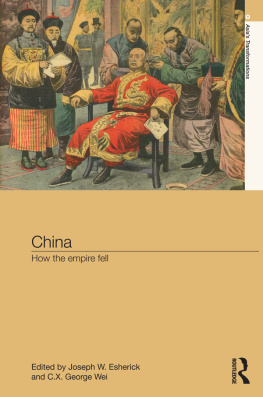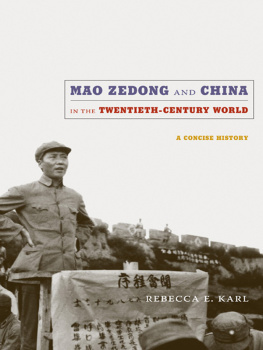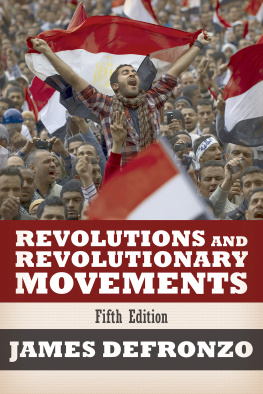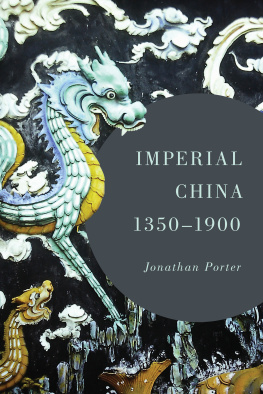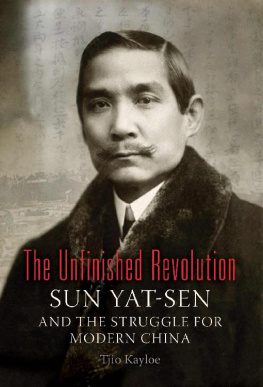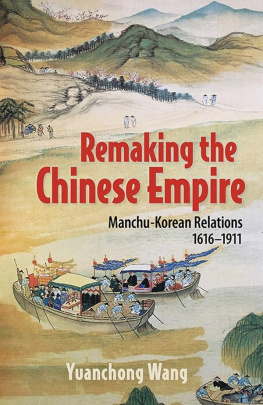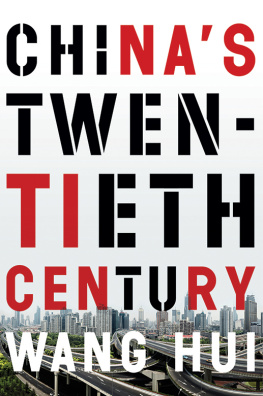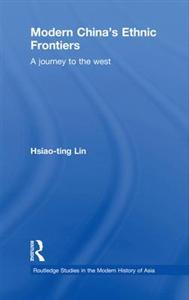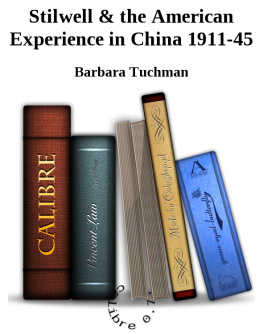China
The Qing dynasty was Chinas last, and it created an empire of unprecedented size and prosperity. However, in 1911 the empire collapsed within a few short months, and China embarked on a revolutionary course that lasted through most of the twentieth century. The 1911 Revolution ended two millennia of imperial rule and established the Republic of China, but dissatisfaction with the early republic fuelled further revolutionary movements, each intended to be more thoroughgoing than the last, from the National Revolution of the 1920s, to the Communist Revolution, and finally the Cultural Revolution.
On the centenary of the 1911 Revolution, Chinese scholars debated the causes and significance of the empires collapse, and this book presents 12 of the most important contributions. Rather than focusing on Sun Yat-sens relatively weak and divided revolutionary movement, as much previous scholarship has, these studies examine the internal dynamics of political and socio-economic change in China. The chapters reveal how reforms in education, army organization, and constitutional rule created new social forces and political movements that undermined dynastic legitimacy within China and on its frontiers. Through detailed analyses, using new archival, memoir, diary, and newspaper sources, the authors cast new light on the sudden collapse of an empire that many thought was at last embarked on a road to reform and national rejuvenation.
China: How the empire fell will be of huge interest to students and scholars of modern Chinese history as well as those of contemporary China.
Joseph W. Esherick is Emeritus Professor of History, University of California, San Diego, USA.
C.X. George Wei is Professor and Head of the Department of History at the University of Macau.
Asias transformations
Edited by Mark Selden
Cornell University, USA
The books in this series explore the political, social, economic and cultural consequences of Asias transformations in the twentieth and twenty-first centuries. The series emphasizes the tumultuous interplay of local, national, regional, and global forces as Asia bids to become the hub of the world economy. While focusing on the contemporary, it also looks back to analyze the antecedents of Asias contested rise.
This series comprises several strands:
Asias transformations
Titles include:
1 Debating Human Rights
Critical essays from the United States and Asia
Edited by Peter Van Ness
Hong Kongs History
State and society under colonial rule
Edited by Tak- Wing Ngo
3 Japans Comfort Women
Sexual slavery and prostitution during World War II and the US occupation
Yuki Tanaka
4 Opium, Empire and the Global Political Economy
Carl A. Trocki
5 Chinese Society
Change, conflict and resistance
Edited by Elizabeth J. Perry and Mark Selden
6 Maos Children in the New China
Voices from the Red Guard generation
Yarong Jiang and David Ashley
7 Remaking the Chinese State
Strategies, society and security
Edited by Chien-min Chao and Bruce J. Dickson
8 Korean Society
Civil society, democracy and the state
Edited by Charles K. Armstrong
9 The Making of Modern Korea
Adrian Buzo
10 The Resurgence of East Asia
500, 150 and 50 year perspectives
Edited by Giovanni Arrighi, Takeshi Hamashita and Mark Selden
11 Chinese Society, second edition
Change, conflict and resistance
Edited by Elizabeth J. Perry and Mark Selden
12 Ethnicity in Asia
Edited by Colin Mackerras
13 The Battle for Asia
From decolonization to globalization
Mark T. Berger
14 State and Society in 21st Century China
Edited by Peter Hays Gries and Stanley Rosen
15 Japans Quiet Transformation
Social change and civil society in the 21st century
Jeff Kingston
16 Confronting the Bush Doctrine
Critical views from the Asia-Pacific
Edited by Mel Gurtov and Peter Van Ness
17 China in War and Revolution, 18951949
Peter Zarrow
18 The Future of US-Korean Relations
The imbalance of power
Edited by John Feffer
19 Working in China
Ethnographies of labor and workplace transformations
Edited by Ching Kwan Lee
20 Korean Society, second edition
Civil society, democracy and the state
Edited by Charles K. Armstrong
21 Singapore
The state and the culture of excess
Souchou Yao
22 Pan-Asianism in Modern Japanese History
Colonialism, regionalism and borders
Edited by Sven Saaler and J. Victor Koschmann
23 The Making of Modern Korea, second edition
Adrian Buzo
24 Re-writing Culture in Taiwan
Edited by Fang-long Shih, Stuart Thompson, and Paul-Franois Tremlett
25 Reclaiming Chinese Society
The new social activism
Edited by You-tien Hsing and Ching Kwan Lee
26 Girl Reading Girl in Japan
Edited by Tomoko Aoyama and Barbara Hartley
27 Chinese Politics
State, society and the market
Edited by Peter Hays Gries and Stanley Rosen
28 Chinese Society, third edition
Change, conflict and resistance
Edited by Elizabeth J. Perry and Mark Selden
29 Mapping Modernity in Shanghai
Space, gender, and visual culture in the Sojourners City, 185398
Samuel Y. Liang
30 Minorities and Multiculturalism in Japanese Education
An interactive perspective
Edited by Ryoko Tsuneyoshi, Kaori H. Okano and Sarane Boocock
31 Japans Wartime Medical Atrocities
Comparative inquiries in science, history, and ethics
Edited by Jing-Bao Nie, Nanyan Guo, Mark Selden and Arthur Kleinman
32 State and Society in Modern Rangoon
Donald M. Seekins
33 Learning Chinese, Turning Chinese
Becoming sinophone in a globalised world
Edward McDonald
34 Aesthetic Constructions of Korean Nationalism
Spectacle, politics and history
Hong Kal
35 Popular Culture and the State in East and Southeast Asia
Edited by Nissim Otmazgin and Eyal Ben Ari
36 Japans Outcaste Abolition
The struggle for national inclusion and the making of the modern state
Noah Y. McCormack
37 The Market and Temple Fairs of Rural China
Red fire
Gene Cooper
38 The Role of American NGOs in Chinas Modernization
Invited influence
Norton Wheeler
39 State, Society and the Market in Contemporary Vietnam
Property, power and values
Edited by Hue-Tam Ho Tai and Mark Sidel
40 East Asia Beyond the History Wars
Confronting the ghosts of violence
Tessa Morris-Suzuki, Morris Low, Leonid Petrov and Timothy Yun Hui Tsu
41 China
How the empire fell
Joseph W. Esherick and C.X. George Wei
Asias great cities
Each volume aims to capture the heartbeat of the contemporary city from multiple perspectives emblematic of the authors own deep familiarity with the distinctive faces of the city, its history, society, culture, politics and economics, and its evolving position in national, regional and global frameworks. While most volumes emphasize urban developments since the Second World War, some pay close attention to the legacy of the
Next page
